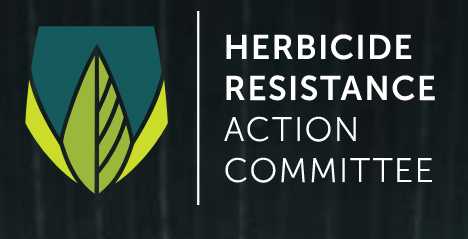INTERNATIONAL HERBICIDE-RESISTANT WEED DATABASE
|
|
Pennsylvania Everlasting (Gamochaeta pensylvanica) is a dicot weed in the Asteraceae family. In Queensland this weed first evolved resistance to Group 22 (Legacy D) herbicides in 2015 and infests Sugarcane for sugar, and Vegetables. Group 22 (Legacy D) herbicides are known as PS I Electron Diversion
(PSI Electron Diversion
). Research has shown that these particular biotypes are resistant to paraquat and they may be cross-resistant to other Group 22 (Legacy D) herbicides. The 'Group' letters/numbers that you see throughout this web site refer to the classification of herbicides by their site of action. To see a full list of herbicides and HRAC herbicide classifications click here.
|
|
|
|
|
| Common Name | Pennsylvania Everlasting | | Species | Gamochaeta pensylvanica | | Group | PS I Electron Diversion
HRAC Group 22 (Legacy D)
| | Herbicides | paraquat | | Location | Australia, Queensland | | Year | 2015 | | Situation(s) | Sugarcane for sugar, and Vegetables | | Contributors - (Alphabetically) | Christopher Preston | |
|
|
|
| | Greenhouse, and Laboratory trials comparing a known susceptible Pennsylvania Everlasting biotype with this Pennsylvania Everlasting biotype have been used to confirm resistance. For further information on the tests conducted please contact the local weed scientists that provided this information. |
| |
| | Genetic studies on HRAC Group 22 resistant Pennsylvania Everlasting have not been reported to the site. There may be a note below or an article discussing the genetics of this biotype in the Fact Sheets and Other Literature |
| |
| | The mechanism of resistance for this biotype is either unknown or has not been entered in the database. If you know anything about the mechanism of resistance for this biotype then please update the database. |
| |
| | There is no record of differences in fitness or competitiveness of these resistant biotypes when compared to that of normal susceptible biotypes. If you have any information pertaining to the fitness of Group 22 (Legacy D) resistant Pennsylvania Everlasting from Queensland please update the database. |
|
|
|
|
| University Of Adelaide - Waite Campus
Crc For Australian Weed Management And School Of Agriculture
Box 2146
Adelaide, 5064, South Australia
Australia
Email Christopher Preston |
|
|
|
|
| Drag a column header and drop it here to group by that column |
|
|
1
| Australia (Queensland) | Australia | Queensland | 2015 |
Sugarcane for sugar, and Vegetables
|
paraquat
| 1 |
PS I Electron Diversion
( HRAC Group 22 (Legacy D)
| 298 | Gamochaeta pensylvanica | Pennsylvania Everlasting | 11029 |
|
2
| Japan | Japan | | 1991 |
Mulberry
|
paraquat
| 25 |
PS I Electron Diversion
( HRAC Group 22 (Legacy D)
| 298 | Gamochaeta pensylvanica | Pennsylvania Everlasting | 7789 |
|
 |
PERMISSION MUST BE OBTAINED FIRST if you intend to base a significant portion of a scientific paper on data derived from this site. Citation:
Heap, I. The International Herbicide-Resistant Weed Database. Online.
. Available
www.weedscience.org
Copyright © 1993-
WeedScience.org All rights reserved. Fair use of this material is encouraged. Proper citation is requested.
|
|